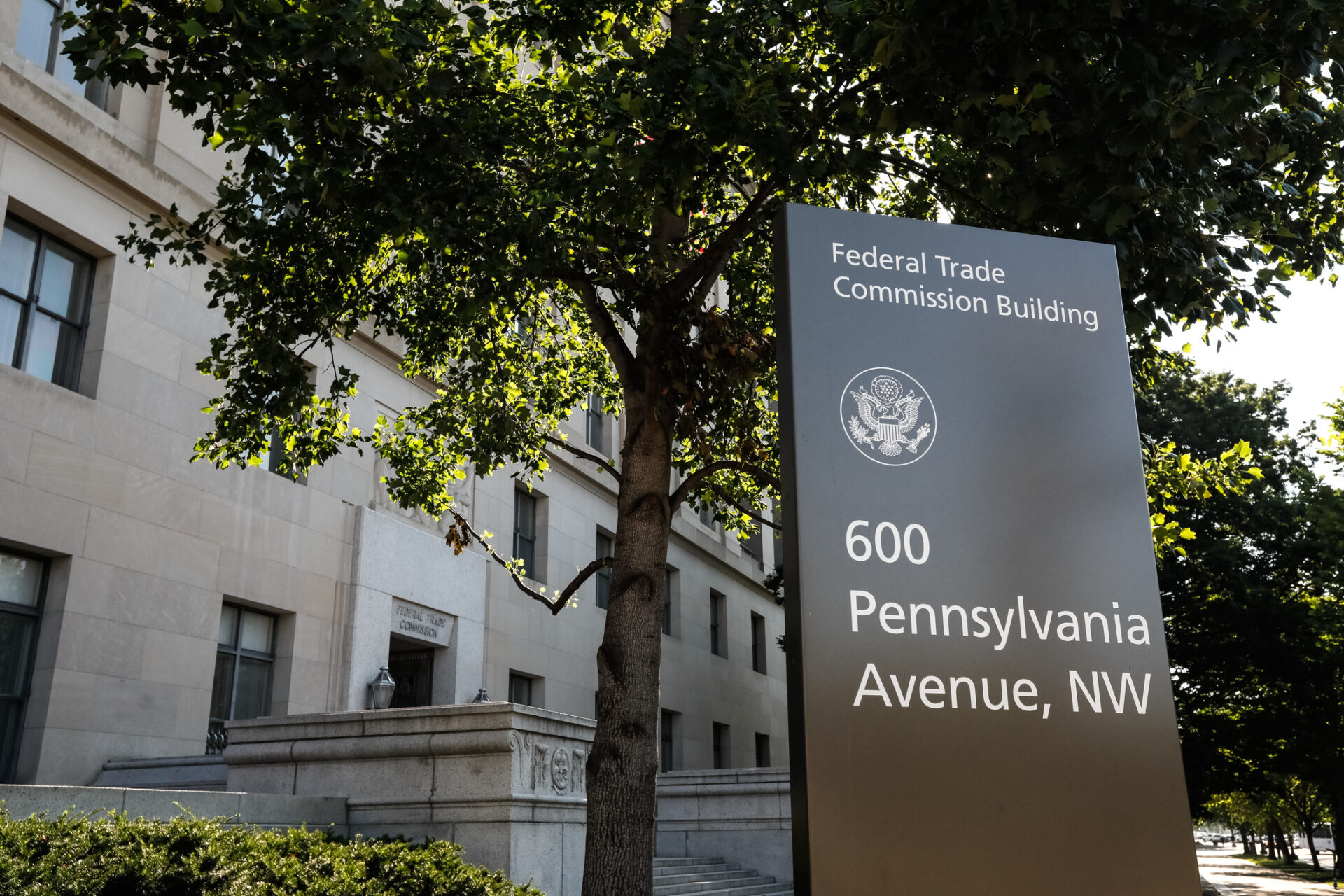Those in the calling industry are surely familiar with the Telephone Consumer Protection Act (TCPA), which the Federal Communications Commission (FCC) enforces—in addition to troves of Plaintiffs’ lawyers due to the TCPA’s highly incentivizing statutory damages.
But because only the government typically enforces it, an equally important but less well-known federal regulation is the Federal Trade Commission’s (FTC) Telemarketing Sales Rule (TSR).
Like the FCC’s TCPA regulations, the TSR contains rules pertaining to the National Do-Not-Call Registry (DNC Registry). But it was the FTC, under the TSR, that actually created the DNC Registry, which the FTC has maintained since its creation in 2003. The TSR also includes a variety of other rules that go beyond the TCPA’s regulations.
Below we cover what the TSR is and some of its more significant provisions that those in the calling industry should know and follow.
What is the TSR?
In 1994, Congress passed the Telemarketing and Consumer Fraud and Abuse Prevention Act. Then in 1995, under that Act, the FTC established the Telemarketing Sales Rule (TSR). The TSR is focused on protecting consumers from false, deceptive, and abusive telemarketing practices.
Who Does the TSR Apply To?
The TSR is mainly applicable to telemarketers (also known as outbound sales agents or representatives) and sellers that use telemarketers to sell their goods or services.
What Penalties Are Possible Under the TSR?
One of the significant differences between the TSR and the TCPA, and why those in the calling industry tend to be less familiar with the TSR, is that an individual must have suffered at least $50,000 in actual damages to bring a lawsuit under the TSR.
But under the TCPA, no proof of any actual damages are necessary to try to recover up to $1,500 per TCPA violation. That is why violations of the TSR tend to be prosecuted by the FTC or State Attorneys General, while violations of the TCPA tend to result in lawsuits brought by individuals, typically as class actions.
While most individuals are unlikely to be able to bring a private cause of action under the TSR, it is still important for callers to comply with the TSR. The FTC has imposed penalties in excess of $50,000 per TSR violation, and the cost of defending any investigation or case brought by the federal government can, of course, be significant.
Key TSR Rules and Regulations
The TSR is lengthy and contains a number of rules and regulations. It is important to understand that, while the TSR’s rules mainly concern what a telemarketer can and cannot do, sellers can also be held liable if they cause, or assist and facilitate, a telemarketer to engage in any actions prohibited by the TSR.
Below we touch on some of the TSR’s key rules and regulations.
DNC Registry
- Regarding the FTC’s DNC Registry, a telemarketer cannot make a sales call to a person who has registered their telephone number on the DNC Registry. Like the TCPA, the TSR has exceptions to that prohibition, such as (1) when the called party has provided their prior express written agreement, or (2) when the seller has an established business relationship with the called party.
- CFR Lookup: 16 C.F.R. § 310.4(b)(1)(iii)(B).
Internal Do-Not-Call Requests
- Telemarketers cannot place sales calls to persons who have made do-not-call (DNC) requests to the seller on whose behalf the telemarketer is calling.
- Telemarketers cannot deny or interfere with a person being placed on an internal do-not-call list. That rule specifically prohibits a telemarketer from requiring the called party to listen to a sales pitch before accepting their DNC request, or requiring the called party to call a different number to submit their DNC request.
- CFR Lookup: 16 C.F.R. § 310.4(b)(1)(ii) and 16 C.F.R. § 310.4(b)(1)(iii)(A).
Safe Harbor
- A telemarketer, or seller, can avoid liability for violating the TSR’s DNC Registry or Internal Do-Not-Call Requests rules by demonstrating that, as part of its routine business practices, it:
- Has written procedures for complying with those rules;
- Trains its employees on complying with those rules;
- Maintains an internal do-not-call list, obtains the necessary information to honor do-not-call requests, and honors do-not-call requests; and
- Subscribes to the FTC’s DNC Registry.
- CFR Lookup: 16 C.F.R. § 310.4(b)(3).
Prerecorded Messages
- To make a prerecorded sales call, a telemarketer must have the called party’s prior express written consent and meet certain other requirements. For example, the caller has to, within 2 seconds after the called party answers its prerecorded sales call, disclose certain information and provide the called party with the ability to make a do-not-call request during the call.
- CFR Lookup: 16 C.F.R. § 310.4(b)(1)(v).
Call-Time Restrictions
- Like the TCPA’s telemarketing regulations, the TSR prohibits certain sales calls to a called party’s residence between 9PM and 8AM, unless the caller has the called party’s prior consent. That restriction is based on the called party’s local time.
- CFR Lookup: 16 C.F.R. § 310.4(c).
Identifying Information
- During their outbound sales calls, telemarketers must truthfully, promptly, and in a clear and conspicuous manner, disclose to the called party (1) the seller’s identity, (2) that the call is for the purpose of selling goods or services, and (3) the nature of the goods or service. There are additional disclosure requirements if the call involves a prize promotion.
- A telemarketer cannot fail to transmit, when made available by its carrier, its telephone number and its name to any caller ID service used by the called party. But a telemarketer can substitute the name of the seller on whose behalf it is calling and the seller’s telephone number, provided that telephone number is answered during regular business hours.
- CFR Lookup: 16 C.F.R. § 310.4(a)(8) and 16 C.F.R. § 310.4(d).
Truthful Representations
- When making sales calls, telemarketers must truthfully disclose, in a clear and conspicuous manner, certain information concerning the good or service they are marketing, such as the total cost of the good or service and any material restrictions.
- Telemarketers are prohibited from misrepresenting any material aspect of the performance, nature, or central characteristics of the good or service they are marketing.
- CFR Lookup: 16 C.F.R. § 310.3(a)(1), (2).
Recordkeeping
- Sellers and telemarketers must keep their records relating to their telemarketing activities for 5 years. In April 2024, the FTC significantly expanded the scope of its recordkeeping obligations.
- CFR Lookup: 16 C.F.R. § 310.05.
Exemptions
- There are a number of acts or practices that are exempt from the TSR. For example, sales calls during which the sale of the good or service is not completed, and payment is not required until after a face-to-face sales presentation, are exempt from some, but not all, of the TSR’s rules. That specific exemption, for example, would likely apply to entities marketing solar panels that are calling to set up appointments.
- CFR Lookup: 16 C.F.R. § 310.6.
How to Achieve TSR Compliance
TSR compliance is key given the significant penalties that can be imposed for violating it. Make compliance easier for you and your team with an outbound customer engagement platform that has built-in DNC list management.
With Readymode, you can import, export, filter and edit your internal do-not-call list, and integrate with National DNC Registry scrubbing services like DNC.com—all in the same platform you use for outbound calling.
The Bottom Line
The TSR exists to protect consumers. With the right practices and tools in place, compliance with the TSR becomes an opportunity to build trust with your customers and maintain a strong business reputation.
This article is only offered for informational purposes; it is not legal advice. Please consult a qualified attorney for your specific compliance needs.
Joe Bowser
Joe Bowser is a partner at Roth Jackson. He has been practicing communications and marketing law for two decades. He advises and defends calling and SMS platform providers (like Readymode), carriers/VoIP providers, and heavy users of those services in their wide range of compliance needs. In his spare time, you can find him taking his boys to their sports, getting in a workout of his own, or catching an Arsenal match.








